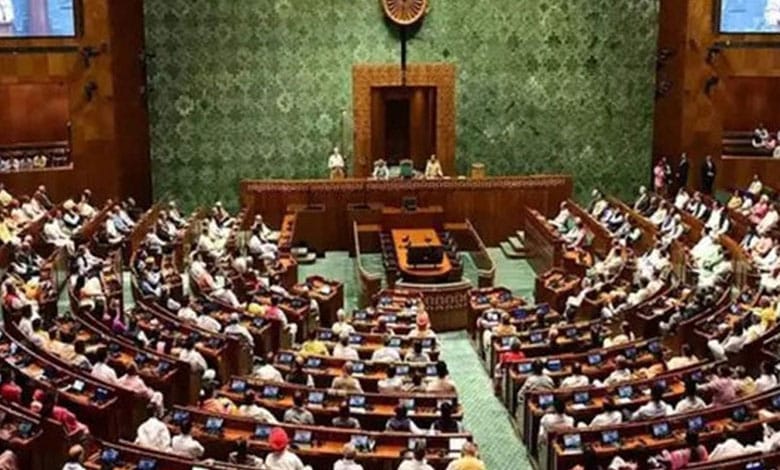JPC on Waqf Amendment Bill Seeks Extension Till 2025 Budget Session
he Bill was referred to the JPC following opposition objections, with the initial deadline for the committee to submit its report set for the first week of the Winter Session.

New Delhi: A motion will be moved in the Lok Sabha today to extend the tenure of the Joint Parliamentary Committee (JPC) tasked with examining the Waqf (Amendment) Bill, 2024.
The committee has requested additional time, with a proposed deadline set for the final day of the 2025 Budget Session.
This motion signifies the ongoing complexities surrounding the Waqf (Amendment) Bill, as debates within the JPC continue to delay its finalization.
Table of Contents
Details of the Motion
According to the Business List of the Lok Sabha, the motion states:
“That this House do extend time for the presentation of the Report of the Joint Committee on the Waqf (Amendment) Bill, 2024 up to the last day of the Budget Session, 2025.”
The motion will be moved by JPC Chairman Jagdambika Pal and member Dilip Saikia, highlighting the need for further deliberations given the contentious nature of the Bill.
Background on the Waqf (Amendment) Bill, 2024
The Waqf (Amendment) Bill, 2024, introduced on August 8, seeks to reform the management, regulation, and administration of Waqf properties across the country. The Bill was referred to the JPC following opposition objections, with the initial deadline for the committee to submit its report set for the first week of the Winter Session.
The committee, comprising 21 Lok Sabha members and 10 Rajya Sabha members, includes representatives from both ruling and opposition parties. Notably, 13 opposition members (9 from the Lower House and 4 from the Upper House) are part of the panel.
Reasons for the Extension Request
- Contentious Debates: Heated discussions and disruptions between ruling BJP members and opposition leaders have hindered progress within the committee.
- Sensitive Nature of the Bill: The Bill addresses critical issues around Waqf properties, making it a politically and socially sensitive matter.
- Draft Report: A 500-page draft report prepared by JPC Chairman Jagdambika Pal is ready. However, members agree that additional deliberation is necessary to achieve a consensus.
- Complexity of Issues: The regulation of Waqf properties involves intricate legal, social, and administrative considerations, requiring thorough examination.
Political Context and Reactions
The Waqf (Amendment) Bill has become a focal point in national politics, with Prime Minister Narendra Modi recently criticizing the original Waqf Act during a speech following the BJP’s success in the Maharashtra Assembly polls.
The Prime Minister alleged that the law, enacted during Congress rule, was designed to further “appeasement politics.” He remarked:
“Congress made laws to promote appeasement politics, and the Waqf Board is an example of it. This was not envisioned by Ambedkar.”
The opposition, however, has accused the BJP of politicizing the issue for electoral gains, further fueling tensions within the JPC.
Implications of the Bill’s Delay
- Management of Waqf Properties: The delay in passing the Bill leaves unresolved issues surrounding the administration of Waqf properties, impacting transparency and governance.
- Political Fallout: The Bill continues to serve as a flashpoint for political debates, with both ruling and opposition parties using it to appeal to their respective voter bases.
- Social Sensitivities: The contentious nature of the Waqf Act and its proposed amendments highlights the need for careful handling to avoid societal unrest.
Next Steps for the JPC
If the Lok Sabha approves the motion, the JPC will have until the 2025 Budget Session to finalize its report. This extended timeline is expected to provide the committee with adequate time to address unresolved issues, consult stakeholders, and reach a consensus.
Also Read | Priyanka Gandhi to Take Oath as Lok Sabha MP: A Historic Moment for the Gandhi Family
Conclusion
The extension of the JPC’s tenure underscores the complexity and sensitivity of the Waqf (Amendment) Bill, 2024. While the delay highlights challenges in achieving bipartisan agreement, it also reflects the importance of thorough deliberation on legislation that affects millions across the country.
As the motion is presented in the Lok Sabha today, all eyes will be on the outcome and its implications for the future of the Bill. Stay tuned for further updates on this critical development.
